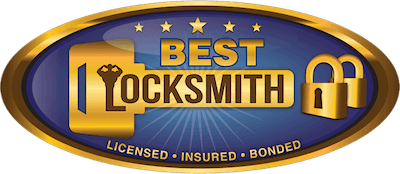Locksmith scams have grown to become a major problem in Dallas and in many areas across the country, with countless complaints to the BBB (Better Business Bureau) and the FTC (Federal Trade Commission). Fortunately, Texas has been a leader in protecting consumers and businesses by requiring that locksmiths be licensed and performing background checks before those licenses are issued. We’ll discuss several locksmith scams to avoid. Some are clearly illegal while others are just bad business practices by people who don’t care if you’re ever a repeat customer.
Not Really A Locksmith
The worst scam is not really being a locksmith at all.
CBS has covered the situation locally, noting that many Northern Texas locksmith companies have a BBB F rating (http://dfw.cbslocal.com/2015/04/10/498652/). That’s a small percentage of the total, but consumers need to be extra cautious with these emergency services. Although most home-based businesses are legitimate, many of these companies are run out of apartments. Or they might not exist at all — just a guy in a truck moving from town to town. Some unlicensed locksmiths are themselves victims of get-rich-quick schemers while others participate in nationwide frauds.
The New York Times reported on particular problems with “online locksmiths” (https://www.nytimes.com/2016/01/31/business/fake-online-locksmiths-may-be-out-to-pick-your-pocket-too.html?_r=0). Every business nowadays needs a website, but many are only that — a web page that collects calls for many different “businesses” for a fee. You think you’re dialing a legitimate company but your call just goes to a call center where an operator acts as if there’s a real company.
These kinds of operators are more likely to be scammers. Often they have no idea what they’re doing and use methods more like a burglar when you’re locked out, causing damage in the process.
Locksmith Abusive Practices
Even some licensed locksmiths treat their customers very unfairly. One of the most common complaints is that of receiving a low price over the phone then being charged twice as much, sometimes even ten times as much, when the work is finished. That’s explained away by undisclosed mileage fees and emergency service surcharges that you should have been told about in advance.
Another scam is replacing a lock or insisting that the lock has to be drilled out when a proper locksmith could solve the problem faster and far cheaper.
Texas Locksmith Licensing
Locksmiths in the State of Texas need to register with the Texas Board of Public Security. To receive a locksmith license they must go through a background check (including an FBI fingerprint check) and demonstrate that they have current liability insurance. It must be renewed every two years, and that process includes mandatory ongoing education. This applies to locksmith companies as well as to each employee. The license number should be displayed, and included in all marketing materials.
Some pros skip the registration. Imagine being a locksmith for, say, 30 years then having to take a class from someone that’s only been in the business for a few years. But if you don’t see a valid license number you’re taking a big risk.
Protecting Yourself
The best protection against such scams is to do your research and choose a locksmith company before you need one, then keeping their phone number handy. It’s good to give them a screening phone call, asking about their licensing and their registered business name. And you should pay attention to how that conversation makes you feel.
If you’re caught in an emergency situation without that background it’s easy to rush or even panic. But instead, take a deep breath and complete as many of the following tips as you can. A clear head and a smart phone are your best defense!
- Be highly suspicious of low rates. $20 for a lockout usually means hidden costs or an outright scam. In competitive markets such as Dallas, Google charges companies that much just when you click on one of their search ads! Most other advertising methods cost roughly the same per customer.
- Look for their license number and a BBB rating.
- Confirm that the business actually exists using Google and directory listings. There should be a significant number of reviews that strike you as genuine (though remember that almost every business, no matter how good, usually gets a few negative reviews).
- Pay attention to how they answer the phone. Do they clearly state the name of the business you think you’re calling?
- Ask about extra charges such as mileage and emergency
- Insist on seeing the technicians certification and ID along with a complete written estimate. To be fair, let them know this before they send someone out. Also let them know that you can only pay by credit card.
- Yep, only pay by credit card after the work is completed for a traceable record and a bit of protection. No legitimate business needs a cash payment up front to “protect themselves.”
- Be skeptical. Is their service vehicle clearly marked? Just in case write down its license plate number. Be suspicious if you’re told that the lock needs to be drilled out — professional locksmiths rarely need to do that except for badly damaged locks.
If you experience locksmith fraud, help yourself and others — report it!
